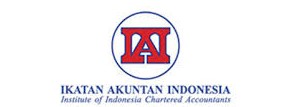Pengaruh Traits Personality dalam Pengambilan Keputusan Etis Auditor Internal: Studi Empiris pada Auditor BPKP Perwakilan Sumatera Barat
Abstract
This study aims to explore the influence of personality traits on internal auditors ethical decision making, with a focus on auditors at the BPKP Representative of West Sumatra. Using quantitative methods, data were collected through questionnaires distributed to 46 auditors. The results of the analysis show that personality traits such as agreeableness, conscientiousness, extraversion, neuroticism, and openness to experience have varying impacts on ethical decision making. Specifically, this study found that personality traits of agreeableness and conscientiousness do not have a significant effect on the quality of auditors ethical decision-making. In contrast, more dominant personality traits, such as neuroticism, tend to negatively affect ethical decisions. These findings highlight the importance of self-awareness and ethical skill development among auditors, as well as the need for training that focuses on ethics and responsible decision making. This research is expected to contribute to the professional development of auditors and enhance integrity in audit practice, as well as strengthen public trust in the accounting profession.
References
Allworth, E., & Hesketh, B. (1999). Construct-Oriented Biodata: Capturing Change-Related and Contextually Relevant Future Performance. International Journal of Selection and Assessment, 7(2), 97-111.
Arwinda, Sari, et al. (2018). Pengaruh Kekuatan Internal dan Eksternal Terhadap Kinerja Seseorang Berdasarkan Teori Atribusi. Jurnal Psikologi, 15(3), 140-155.
Barrick, M. R., & Mount, M. K. (1991). The Big Five Personality Dimensions and Job Performance: A Meta-Analysis. Personnel Psychology, 44(1), 1-26.
Bono, J. E., & Judge, T. A. (2004). Personality and Transformational and Transactional Leadership: A Meta-Analysis. Journal of Applied Psychology, 89(5), 901-910.
Brown, M. E., Treviño, L. K., & Harrison, D. A. (2005). Ethical Leadership: A Social Learning Perspective for Construct Development and Testing. Organizational Behavior and Human Decision Processes, 97(2), 117-134.
Cohen, J., Pant, L. W., & Sharp, D. J. (1998). The Effect of Gender and Academic Discipline Diversity on the Ethical Evaluations, Ethical Intentions, and Ethical Orientation of Potential Public Accounting Recruits. Accounting Horizons, 12(3), 250-270.
Costa, P. T., & McCrae, R. R. (1992). Revised NEO Personality Inventory (NEO-PI-R) and NEO Five-Factor Inventory (NEO-FFI) Professional Manual. Psychological Assessment Resources.
Costa, P. T., Jr., & McCrae, R. R. (1992). Four Ways Five Factors are Basic. Personality and Individual Differences, 13(6), 653-665.
Costa, P. T., McCrae, R. R., & Dye, D. A. (1991). Facet Scales for Agreeableness and Conscientiousness: A Revision of the NEO Personality Inventory. Personality and Individual Differences, 12(9), 887-898.
De Hoogh, A. H., & Den Hartog, D. N. (2008). Ethical and Despotic Leadership, Relationships with Leader’s Social Responsibility, Top Management Team Effectiveness and Subordinates’ Optimism: A Multi-method Study. The Leadership Quarterly, 19(3), 297-311.
Digman, J. M. (1990). Personality Structure: Emergence of the Five-Factor Model. Annual Review of Psychology, 41(1), 417-440.
Goldberg, L. R. (1982). From Ace to Zombie: Some Explorations in the Language of Personality. Advances in Personality Assessment, 1, 203-234.
Goldberg, L. R. (1990). An Alternative "Description of Personality": The Big-Five Factor Structure. Journal of Personality and Social Psychology, 59(6), 1216-1229.
Hogan, R., Curphy, G. J., & Hogan, J. (1994). What We Know About Leadership: Effectiveness and Personality. American Psychologist, 49(6), 493-504.
Jaffar, R., Salleh, S. M., Ismail, S., & Manaf, N. A. (2011). The Impact of Personality Traits on Auditor's Ethical Decision Making: Evidence from Malaysia. Journal of Business Ethics, 104(2), 133-143.
Jamilah, J., Fanani, Z., & Chandrarin, G. (2007). Pengaruh Faktor-Faktor Kepribadian Terhadap Perilaku Etis Auditor. Simposium Nasional Akuntansi X, 1-25.
Jensen-Campbell, L. A., & Graziano, W. G. (2001). Agreeableness as a Moderator of Interpersonal Conflict. Journal of Personality, 69(2), 323-362.
Jones, T. M. (1991). Ethical Decision Making by Individuals in Organizations: An Issue-Contingent Model. Academy of Management Review, 16(2), 366-395.
Judge, T. A., Bono, J. E., Ilies, R., & Gerhardt, M. W. (2002). Personality and Leadership: A Qualitative and Quantitative Review. Journal of Applied Psychology, 87(4), 765-780.
Kalshoven, K., Den Hartog, D. N., & De Hoogh, A. H. (2010). Ethical Leadership at Work Questionnaire (ELWQ): Development and Validation of a Multidimensional Measure. The Leadership Quarterly, 22(1), 51-69.
Luthans, F. (2005). Organizational Behavior. 10th Edition. McGraw-Hill.
McCrae, R. R., & Costa, P. T. (1987). Validation of the Five-Factor Model of Personality Across Instruments and Observers. Journal of Personality and Social Psychology, 52(1), 81-90.
Mount, M. K., & Barrick, M. R. (1995). The Big Five Personality Dimensions: Implications for Research and Practice in Human Resources Management. Research in Personnel and Human Resources Management, 13, 153-200.
Muslim, A., Nurhayati, S., & Sari, M. (2019). Efektivitas Pengawasan Keuangan Daerah: Studi Kasus di Lembaga Pengawas Pemerintah Indonesia. Jurnal Akuntansi dan Keuangan, 12(2), 110-123.
Pulakos, E. D., Arad, S., Donovan, M. A., & Plamondon, K. E. (2002). Adaptability in the Workplace: Development of a Taxonomy of Adaptive Performance. Journal of Applied Psychology, 87(4), 612-624.
Rothmann, S., & Coetzer, E. P. (2003). The Big Five Personality Dimensions and Job Performance. SA Journal of Industrial Psychology, 29(1), 68-74.
Tett, R. P., & Burnett, D. D. (2003). A Personality Trait-Based Interactionist Model of Job Performance. Journal of Applied Psychology, 88(3), 500-517.
Trevino, L. K., & Youngblood, S. A. (1990). Bad Apples in Bad Barrels: A Causal Analysis of Ethical Decision-Making Behavior. Journal of Applied Psychology, 75(4), 378-385.
Turner, R. (2014). The Big Five Personality Traits: A Critical Review. Psychology, 5(1), 17-24.
Welker, J., & Berardino, L. (2013). The Role of Ethics in Organizational Behavior: A Model for Ethical Decision Making. Journal of Business Ethics, 115(1), 33-48.







.png)
.png)
